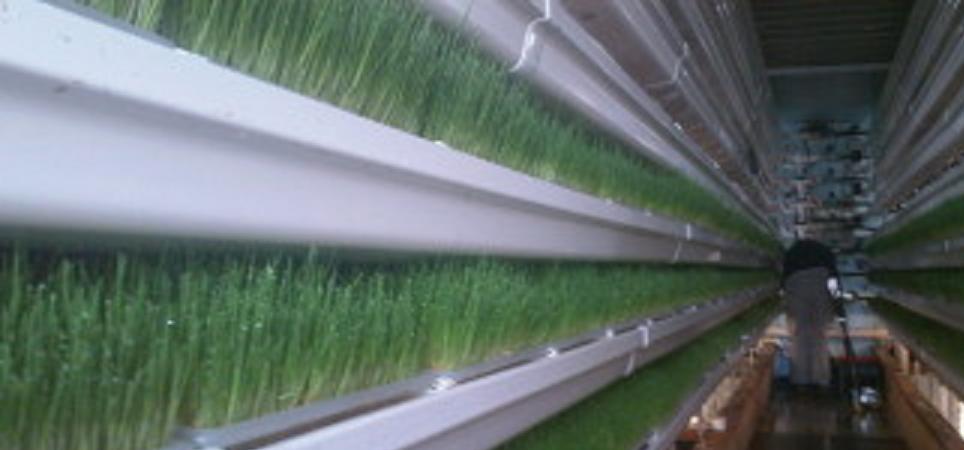Fodder system can very useful for feeding any kind of livestock such as cattle, goats, horses, chicken, rabbits, sheep, and so on. Fodder can be grown and brought to the animals as feed and it could be anything that you grow, in addition to what they eat from the pastures as forage.
Fodder can be any kind of silage, hay, straws, grass, compressed and palliated feed, and so on. We will discuss a fodder system that you can grow yourself using hydroponics that gives you quick results with low cost and minimum efforts.
Many regions of the world are facing shortages of water and food for the livestock. Water shortages in particular, are becoming a major concern for many companies and individuals in the agriculture industry and farm lands owners, trying to raise animals with minimum resources, and so overcoming shortages of food and water requires maximizing the efficiency of the products and resources that you use. Choosing alternatives for livestock feed can often become a challenging task.
Growing your own fodder with DIY systems can be an effective way to overcome livestock feed shortages. This technique can be very effective and a sustainable method to address global food shortages. Growing fodder in DIY systems not only saves water, but they also give you high quality and nutritious fodder with minimum efforts.
Sprouting Fodder
Growing fodder from grains or seeds is just as easy as sprouting grain for human consumption. Typically fodder would be ready within 6-8 days. it also depends on at what stage you want to harvest your fodder. You can use a wide variety of grains, such as barley, wheat grass, maze, oats, etc.
Steps on growing your fodder
Step #1 : Soak your seeds that you wish to sprout in water for about 6 to eight hours.
Step #2: get some shallow trays with drain holes, spread seeds and drain the water.
Step #3: Keep soaked for and watered couple of times a day for a length of growing cycle. Temperature range should be 65-70 degrees, to keep mold off. Presoak with bleach to get rid of mold if needed.
Step #4: Watch the shoots grow and harvest when you get the desired length of plants.
Fodder will usually take 6-7 day to grow from seeds to 6-7 inches shoots of plants. With multiple trays, it is possible to produce a good supply of fodder for the animals in a very short time. This system doesn’t require much space and needs very little water. This is also a very cost effective way for growing fodder compared to hay and other alternatives.
Benefits of fodder system
Fodder system can be beneficial in several ways. Growing fresh barley grass and other plants from grains and from seeds can reduce feed cost for livestock, as well as grow additional feed for livestock when food is limited on the pastures. Below are some more benefits listed.
- overall savings on daily feed costs
- saving water
- considerable reduction of food waste
- added nutrition and food value
- high quality production in short time and space
- less need for care
- Highly digestive
- Increase activities of Enzymes
- available on demand
- high in Omega-3 fatty acids
Where to buy fodder DIY systems
Now you can buy fodder flakes, feed in a box or Mountain Sky Micro-Greens DIY fodder systems from Colorado. Buying fodder systems and fodder flakes is easy. You can buy it from local vending machines just as you would buy anything else and pay way less than what you would to buy hay. Another huge benefit of buying fodder flakes or feed in a box is that you are able to buy as much or as little as you need. If you have two rabbits, a five pound bag might be enough, while you might need more than that to feed your horse daily. Buying fodder flakes and feed in a box Is just a convenient way of providing feed to your livestock without any hassle. Feeding your livestock some additional nutrition has never been easier than this.
Source : Sustainable Livestock Nutrition





